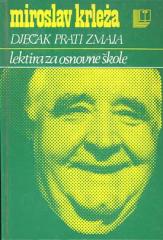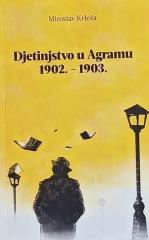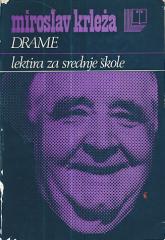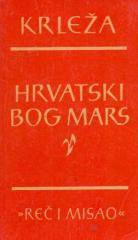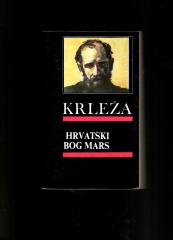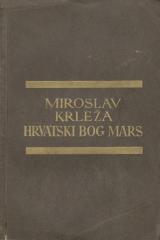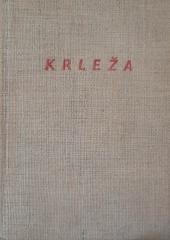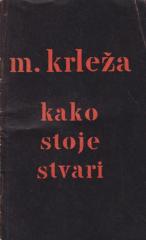Miroslav Krleža
Miroslav Krleža (July 7, 1893 – December 29, 1981) was one of the most important Croatian writers of the 20th century – a poet, novelist, playwright, essayist and encyclopedist. He was born in Zagreb, educated at the Austro-Hungarian Military Academy, but quickly devoted himself to literature and intellectual activity. He was a strong critic of social injustice, petty bourgeoisie and political opportunism, which characterized much of his literature.
His work covers a wide range of genres. The most notable are the novel series about the Glembays (Gospoda Glembayev, U agoniji, Leda), and the epic novel The Return of Filip Latinovicz (1932). He also wrote essays, diaries, criticism, encyclopedic articles and poems such as those from the collection Pan.
Krleža's style is characterized by a rich vocabulary, complex sentences, intellectual depth and ironic distancing. He was a key figure in Croatian culture and one of the founders of the Lexicographic Institute (today LZ Miroslav Krleža). Despite political pressures, he remained faithful to intellectual autonomy.
Krleža's legacy is indispensable in the Croatian canon and indispensable in understanding modernity and the historical destiny of Croatia and Central Europe.
Titles in our offer
Dječak prati zmaja
"The Boy Follows the Dragon" is a book that takes us on a fantastic journey and encourages us to think about life and the world in a different way.
Djetinjstvo u Agramu 1902.-1903.
Dnevnik 1: Dnevnik 1914 - 17 (Davni dani I)
Dnevnik 2: Dnevnik 1918-22 (Davni dani II)
Drame (izbor za srednje škole)
Hrvatski bog Mars
Krleža's collection of short stories about the First World War. It is also Krleža's most famous work and one of the most famous anti-war works in Europe at the time.
Hrvatski bog Mars
The short story collection Croatian god Mars by Miroslav Krleža is one of the most important anti-war works of Croatian literature. It was first issued in 1922, then in 1933, and took its final form in 1947.
